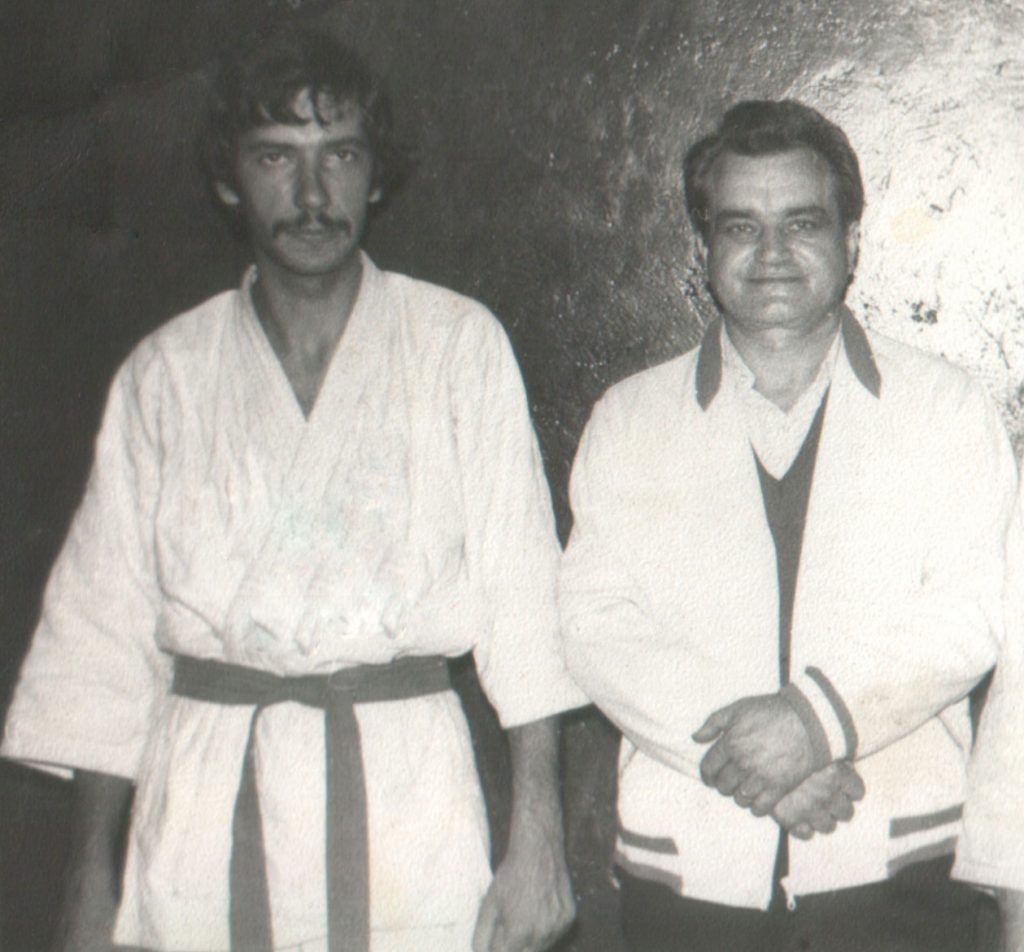About us
What is Rekigan Jujutsu?
Rekigan Jujutsu is an eclectic martial art that incorporates techniques and principles from various Japanese schools as well as from other sources.
Rekigan means conglomerate rock – the name seemed to represent very well the structure of our style. Just as the conglomerate rock is made up of different gravels linked through a natural cement, making a compact and solid rock, likewise Rekigan Jujutsu incorporates techniques and principles from several Japanese Jujutsu schools and other martial arts.

After being banned by the Communist authorities of those times, beginning with 1990 in Romania it became possible again the legal practicing of martial arts. This has led to the need for legal organization. Over time, we have adopted different forms of organization and we have chosen different names. Starting with 1994 we functioned in the Romanian League of Jiu Jitsu as a section under the name Shiro. For a short period of time, between 1999 and 2000, we used the name Ichiban Bujutsu Ryu, so that in 2001, according to the new legal requirements, we would reorganize as the Ichiban-Ryu Association. In 2015 we decided to adopt the name of Rekigan Jujutsu.

Jujutsu means "the art of suppleness."
Ju can be translated by suppleness or flexibility, and Jutsu means art or technique. It is often misspelled as Jiu Jitsu or Ju Jitsu but this is already widely accepted.
Jujutsu does not have a founder or an established origin, since its beginnings can not be historically attested and even the name Jujutsu was attributed relatively recently, in the 17th century, to a range of similar techniques developed in different schools.
The first references to the ancient forms of Japanese combat appear in the oldest Japanese document Kojiki (Records of Ancient Matters) 712 AD, where a confrontation is described in which a technique similar to those used today in Jujutsu would have been used. Tegoi and his successor Sumo are considered to be the source from which the first techniques that constituted the ancient forms of Japanese combat were synthesized.
In contrast to martial arts in the surrounding regions, Kung Fu in China or Okinawa-te (Karate) in Okinawa, not a lot of striking techniques with hands and feet were used. The specificity of Japanese battles, where fighters were wearing armour, made the hand or foot strikes to be not very effective. Thus throws, immobilizations, joint keys, or chokeholds were preferred.
Also combat techniques with different weapons were studied, combined with close-combat techniques, but over time, due to the transformations Japan went through, going sometimes through forced pacification, the transmission of weapons fighting techniques was almost completely foregone, focusing on close-combat techniques.
At the beginning each school kept certain techniques to be transmitted only within its own school, becoming the patrimony of secret techniques, transmitted only to the successors elected most often within the family. Later in peaceful contests called randori different schools have begun to exchange knowledge and to assimilate techniques that have evolved and have become what we today know as Jujutsu.
Our teachers:

Alois Gurski shihan (1932-1996)
The late master Alois Gurski was the central figure of Jujutsu in Romania since 1966. Owner of the black belt 7 dan, awarded by Hans Rainer Hoffmann (I.J.J.U), organized and developed with abnegation and passion the Jujutsu organisation in Romania, the living proof being dozens of instructors and hundreds of students he has modelled over the years.
Dan Alexandrescu shihan
Dan Alexandrescu was born in 1955 in Bucharest. He is a direct student of shihan Alois Gurski and owns the black belt 6 dan. Founding member of the Romanian Martial Arts Federation and the Romanian League of Jiu Jitsu, coach and national referee, has held various positions within martial arts Governing Body, including just a few of the most important: coach of the national team, president of the Romanian League of Jiu Jitsu or director of Ju Jitsu department (R.M.A.F).
